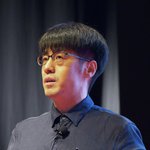
An international jury of independent experts will decide the winner. The experts will examine the entrants regarding design, economic aspects, innovation, energy supply and sustainability, among other things. The winners will be presented and honoured at the 25th International Passive House Conference in 2021.
The evaluation procedure will be carried out in two steps:
An extended jury will make an online pre-selection. The final winners will be determined by a select, smaller panel in a separate session.

Dragoș Arnăutu is an architect and has been working for the Passive House Institute in Darmstadt since 2012. His main tasks include consulting and certification of international Passive House projects as well as training and the development of the planning tool designPH. After studying architecture at the Technical University in Cluj-Napoca, Romania, he completed a scholarship at the Passive House Institute, which he received from the German Federal Foundation for the Environment (DBU). Dragos Arnăutu teaches responsible architecture and believes that the Passive House movement is the right way to sustainability.

Corinna Geiger is an industrial engineer with a focus on energy-efficient construction. During her studies, she focused on sustainable architecture, building physics and economic efficiency. She has been a research assistant at the Passive House Institute since 2016. In addition to consulting and certification of international construction projects, her main tasks include leading the working group on building certification. She also gives lectures regularly in Passive House seminars and at the Augsburg and Rhine-Main Universities of Applied Sciences.

Deborah Moelis is a Principal and a founding member of Handel Architects. She is a licensed Architect in New York and California and a Certified Passive House Designer. Deborah Moelis served as Project Manager for Cornell Tech’s new residential tower, The House, in New York City. The tower is the largest university building in the world built to Passive House standard. The project also received LEED Platinum certification and was awarded LEED for Homes Building of the Year for 2018. Current work includes serving as Project Manager for Sendero Verde, a new 709-unit residential building in New York City, which, when complete, will be the largest fully affordable Passive House building in the world as well as a 750-bed student residence for the University of Toronto Scarborough, which is striving for Passive House certification. Deborah Moelis' projects have been extensively published and received numerous awards, including honors from AIANY, Uli New York, NYSERDA, Boston Preservation Alliance and the Society of American Registered Architects.

Ana Sánchez-Ostiz holds a PhD in Architecture, and she is an Associate Professor at the School of Architecture of the University of Navarra (ETSAUN), the third most prestigious University in Europe (according the ranking Times Higher Education 2019). She is also the director of the master' degree programme in Environmental Design and Building Management (MDGAE) and leads the research group SAVIArquitectura. She was vice-dean of ETSAUN from 2015 to 2019. She teaches graduate and postgraduate courses in her areas of expertise: design and construction of façades and roofs, energy retrofitting of buildings and neighbourhoods, net Zero Energy Buildings, quantification of sustainable architecture and environmental certifications. She is the author of several books and technical papers and has been a visiting researcher at several universities in England and the United States of America.

Burkhard Schulze Darup has been a freelance architect since 1987. He has realized many renovation and new building projects in the spirit of resource efficiency and passive solar architecture. In 2003, he received his doctorate at the University of Hanover on the subject of "Energy-efficient residential building refurbishment with factor 10". This was followed by in-depth research projects on the same topic, on its broad urban development impact and on cost-effective and sustainable multi-storey residential construction. His advisory board activities include numerous committees at the Federal Environment Agency, the UNECE and numerous institutes from the IWU to the Umweltbank. In addition, he is an author of specialist books and provides consulting support for numerous projects such as the DomRömer development in the new Frankfurt Mitte district, where the focus was not only on contemporary buildings but also on high-quality reconstructions using passive house components.

Tom Wright qualified as an architect in 1983, the same year he was accepted as a member of the Royal Institute of British Architects (RIBA). From there, he went on to become a director of the architectural practice Lister Drew Haines Barrow, which was taken over by Atkins, where he became head of Atkins international architecture arm. Wright became design director for the Jumeirah Beach Resort, Dubai, and designed the Burj Al Arab (Tower of the Arabs). It was conceived in October 1993 and finished in 1999. The brief was to create an icon for Dubai. In 2013 Tom Wright, Geku George and Hakim Khennouchi left Atkins to create a new practice called WKK Architects, based in Horsham, UK. WKK was set up to create dynamic and exciting design solutions that are appropriate, realistic and efficient. He believes that the key responsibility of an Architect is to continually strive to create designs that uplift the spirit whilst helping to promote a sustainable future.

Prof. Yehao Song is an architect, researcher and educator. He is the co-founder and principal of SUP Atelier, the director of the Institute of Architecture and Technology at Tsinghua University, and the secretary-general of the Chinese Green Building Committee. Song has been concentrating on sustainable theory and design for over 20 years with a focus on architecture, urban studies, and building technology, while highly promoting the combination of modern design and vernacular architecture in China. He is also one of the leading academics in China's sustainable architecture scene. His buildings are known for a holistic and sustainable approach that combines building-complexity with vernacular Chinese building materials and techniques. For his work, he received awards from all over the world, including the gold medal at the ARCASIA award of Architecture, the Engineering Prize of the World Architecture Festival 2019, the Architizer A+ Award, WAN Award, IDA Award, etc.